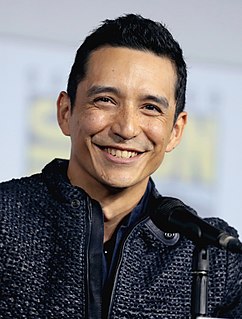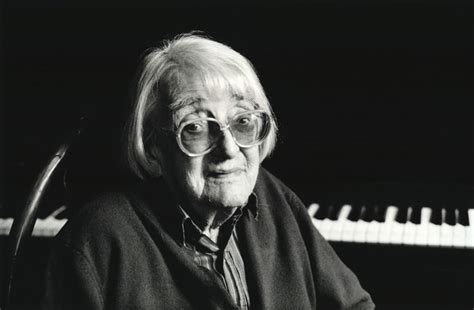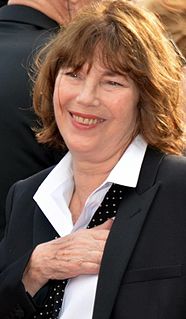Цитата Норины Герц
Я вырос в очень политическом доме. Моя мать была сопредседателем «Группы 300», организации, целью которой было привлечь в парламент больше женщин-депутатов, и она сама баллотировалась на выборах 1987 года, за год до своей смерти.
Связанные цитаты
Моя мать преподает английский в средней школе, она художник, поэт и скульптор, она опубликовала двенадцать сборников стихов. Я выросла в семье в Венесуэле с живыми, дышащими художественными инсталляциями, которые были способом, которым она выражала себя, в очень творческой среде, где прославлялись идеи, где прославлялось художественное самовыражение. Видя ее как человека, который всегда мог дать творческую отдачу - если ей было грустно, она писала стихотворение, если она чувствовала себя счастливой, она делала скульптуру - я думаю, что у меня был ранний интерес к поиску выходов для моих страстей. .
Я вырос в одном из самых социально консервативных районов Огайо, и мои родители были традиционными католиками. Но в пожилом возрасте моя мать получала медицинскую помощь на дому от парня, который был геем, который относился к ней замечательно. Перед смертью она участвовала в гей-параде в Цинциннати.
Она освободила себя от Фабио и от себя, от всех бесполезных усилий, которые она предпринимала, чтобы добраться туда, где она была, и ничего там не найти. С отстраненным любопытством она наблюдала возрождение своих слабостей, своих навязчивых идей. На этот раз она позволила им решить, так как она все равно ничего не могла сделать. Против определенных частей себя ты остаешься бессильным, сказала она себе, приятно регрессируя в то время, когда она была девочкой.
... факт был в том, что она знала о них больше, чем знала о себе, у нее никогда не было карты, чтобы узнать, на что она похожа. Могла ли она петь? (Приятно было это слышать?) Была ли она хорошенькой? Была ли она хорошим другом? Могла ли она быть любящей матерью? Верная жена? Есть ли у меня сестра и любит ли она меня? Если бы моя мать знала меня, я бы ей понравился? (140)
Настолько твердой стала решимость Нивеи, что она написала в своем дневнике, что откажется от брака, чтобы полностью посвятить себя борьбе за избирательное право женщин. Она не знала, что такая жертва не потребуется и что она выйдет замуж за человека по любви, который поддержит ее в ее политических целях.
Я не был воспитан с религией, и у меня не было веры до смерти моей матери. С другой стороны, когда она умерла, я не сразу почувствовал, что она «ушла». Я не верю, что она где-то на небесах, но я также чувствую, что мы мало что понимаем в природе вселенной. Так что временами я держусь за эту неуверенность.
Она подняла руку, и из кольца, которое она носила, исходил сильный свет, который освещал ее одну и оставлял все остальное в темноте. Она стояла перед Фродо и казалась теперь неизмеримо высокой и прекрасной сверх выносливости, ужасной и благоговейной. Потом она опустила руку, и свет померк, и вдруг она снова засмеялась, и вот! она уменьшилась: стройная женщина-эльф, одетая в простое белое, чей нежный голос был мягким и грустным.



































